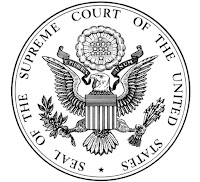On March 21, the Supreme Court denied a petition for certiorari in the case of Jim Olive Photography v. University of Houston System. The case involved important and interesting legal issues regarding judicial enforcement of the Fifth and Fourteenth Amendments' prohibitions against state government takings of copyrighted property without just compensation. Unfortunately, the court's denial of the petition means that those issues will have to wait for another time.
In Allen v. Cooper (2020), the Supreme Court concluded that the Eleventh Amendment generally bars federal courts from hearing infringement claims against state governments. But the Eleventh Amendment does not bar federal courts from hearing claims against states for takings of private property without just compensation or for deprivations of due process. As explained in my December 2021 Perspectives from FSF Scholars, "States Should Not Take Intellectual Property Without Justice Compensation: The Constitution's Fifth and Fourteenth Amendments Protect Copyrights."
In Jim Olive Photography, the petitioning copyright owner's taking claims were denied by the Texas Supreme Court. He sought an order by the U.S. Supreme Court to vacate that decision and have the lower court reconsider his taking claims in light of the high court's decision in Cedar Point Nursery v. Hassid (2021). In Hassid, the court determined that regulations requiring government access to private property constitute per se physical takings similar to an easement in property because they appropriate the "right to exclude." And the copyright owner in Jim Olive Photography made a well-founded argument a state's appropriation of a copyright owner's exclusive rights, either by making unauthorized reproductions of the work or by publicly displaying it, is analogous to a state's appropriation of a portion of a property owner's land or crops.
The Supreme Court's denial of the petition in Jim Olive Photography is unfortunate for copyright owners whose works have been infringed by state government agencies. But I stand by the legal principles and reasoning about takings of copyrighted property that are set forth in my December 2021 Perspectives:
Copyrights are a type of property that are expressly recognized in the Constitution. This understanding of copyrights as property provides a principled basis for Takings Clause claims when states intentionally or recklessly appropriate exclusive rights in copyrighted property. Such claims also appear consonant with Supreme Court decisions that prohibit states from appropriating personal property and an owner's "right to exclude." The Court should extend its Takings Clause jurisprudence to include takings of copyrighted property.





